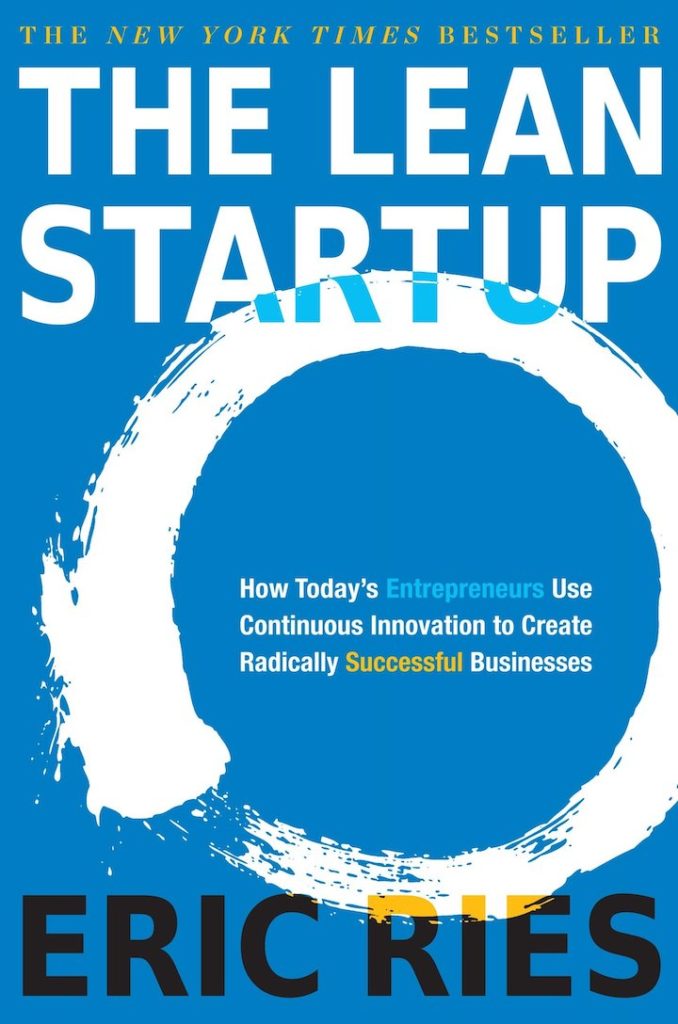
The Lean Startup by Eric Ries is an excellent introduction to the lean startup concepts and movement.
I have been involved in a few very small startups, nothing that ever made or will ever made the headlines, but I enjoyed being part of organizations that were looking to make a difference, starting from scratch, with many dreams and a few ideas, but little bureaucracy and red tapes.
In those startups, different solutions were randomly tried out to see what would work and what would not. It was usually a relatively chaotic and ad-hoc process, and we experienced more failures than successes.
However, the first time I read this book I was actually working for a bigger organization, that didn’t really seem to me like a startup at all. But the concepts of the Lean Startup can be applied to companies of all shapes and forms with great results.
The Lean Startup is a method to develop and manage startups or new ventures in bigger organizations.
Startups need to operate following their own methods in order to succeed. What works in established companies may actually damage the development of a startup. However, their policies and procedures shouldn’t be created at random, but they should be the result of proper techniques and research.
The Lean Startup suggests a new methodology for business managers of startup companies to obtain the information they need, to make fast decisions, and accelerate the learning necessary to be successful.
As all methods, is not a magic formula, and business managers need to adapt it to their specific circumstances, but Eric Ries is convinced that his method will make a positive difference for many organizations.
“The Lean Startup method teaches you how to drive a startup-how to steer, when to turn, and when to persevere-and grow a business with maximum acceleration.”
The title The Lean Startup was inspired by the lean manufacturing revolution developed at Toyota that includes, among other things, taking advantage of workers’ knowledge and idea, using just-in-time production, and accelerating cycle times.
Many startups begin with an idea for a product that they believe people want. Often they spend months or years to perfect that product, but then they fail to engage the prospective customers early on, while they are still developing that product, in order to receive the necessary feedback to make corrections and improvements. When they finally show the finished product to the customers, they often discover that they built the wrong product, and at that point is too late, and the startups fail.
The Lean Startup includes case studies to illustrate its principles, but Eric Ries draws most of his material from his own background as an entrepreneur.
Five key principles define the discussion in the entire book:
- Entrepreneurship is everywhere. An entrepreneur is someone who works in “a human institution designed to create new products and services under conditions of extreme uncertainty”: there is no need to work in a garage to be in a startup.
- Entrepreneurship is management. Entrepreneurs are managers, just of a different kind, a kind that works in contexts of extreme uncertainty.
- Validated Learning. Startups exist to learn how to build a sustainable business. “The learning can be validated scientifically by running frequent experiments that allow entrepreneurs to test each element of their vision”.
- Build-Measure-Learn. Turn ideas into products, measure how customers respond, and then learn whether to pivot or persevere are the startup’s fundamental activities. Accelerating the feedback loop is the goal. This is done by developing a minimum viable product (MVP) to begin the process of learning as quickly as possible. “Once the MVP is established, a startup can work on tuning the engine. This will involve measurement and learning and must include actionable metrics that can demonstrate cause and effect question”.
- Innovation accounting. It is not all about excitement. Boring stuff, including accounting, are important in a startup. However, a new type of accounting is needed for startups to facilitate fast learning.
The Lean Startup is an excellent introduction to the lean startup concepts and movement: at the end, the book changes its tone, and it becomes like the manifesto of the movement.


Trackbacks/Pingbacks